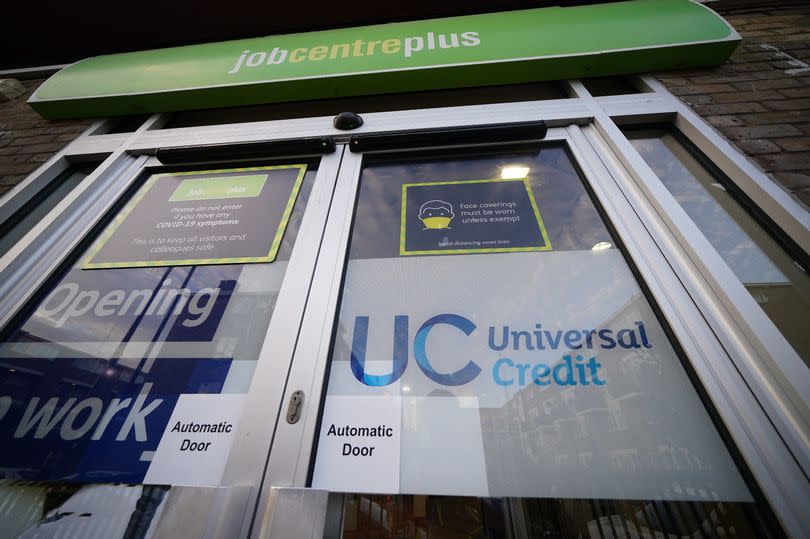DWP trial of bank account monitoring finds 63,000 benefit claimants breaking rules

A recent trial by the Department for Work and Pensions (DWP) has revealed that tens of thousands of benefit claimants may be breaking the rules. The DWP asked two high street banks to monitor the bank accounts of individuals receiving Universal Credit, Pension Credit, or ESA (Employment and Support Allowance).
One of the banks, which remains unnamed, identified 713,000 accounts held by individuals claiming the benefits. Over a three-month period, it found that 60,000 of these accounts had balances exceeding the limit for entitlement to benefits.
In addition, 'abroad fraud' was detected in another 3,000 accounts. This is where the account holder either lives overseas while claiming UK benefits or takes holidays longer than permitted under DWP travel rules. Accounts were scrutinised for signs of being accessed from abroad for more than four consecutive weeks.
READ MORE: DWP minister issues PIP update on 'comprehensive' assessment criteria
The average monthly balance of the 60,000 accounts suspected of breaching capital limit rules was a staggering £50,000. The maximum savings allowed for claiming Universal Credit and ESA is £16,000, while for Pension Credit - a supplement for pensioners on a low income - it's £10,000, reports Birmingham Live.
Currently, the DWP can only inspect accounts if it suspects fraud or as part of the initial verification of a benefit claim. However, these new powers would permit regular monitoring of accounts to ensure people qualify for state support.
Benefit claimants are subject to restrictions on the amount of time they can spend abroad. For those receiving Universal Credit, the limit is no more than a month at a time, while for ESA and Pension Credit recipients, it's four weeks. While individuals can still receive their State Pension whilst living overseas, it's not possible to obtain Pension Credit to increase the amount.
The Department for Work and Pensions (DWP) conducted initial checks in July, August, and September 2022 as part of its plans for data collection by banks, according to an Impact Assessment. Of the 713,000 accounts scrutinised, 58 per cent belonged to Universal Credit claimants, 22 per cent to people on ESA, and the remaining 20 per cent to Pension Credit recipients.
The DWP stated: "Among these, approximately 60,000 accounts were in risk of breaching the capital rule (8 per cent) and 3,000 accounts in risk of breaching the abroad rule (less than 1 per cent). For accounts at risk of breaching the capital rule, the average monthly balance was £50,000 and about 50 per cent of those accounts were joint accounts.
"The above results of the small-scale tests with two banks and building societies indicate a strong potential for the use of banking data to identify possible capital and abroad fraud and error across a range of means-tested benefits."
The report also revealed that earlier checks were carried out for the DWP back in 2017. During this period, another bank examined a limited sample of cases and reported 549 accounts as potentially suspicious under the Proceeds of Crime Act.
The DWP has reviewed cases and discovered that 32 per cent of these had excess savings, making individuals ineligible for the benefits they were receiving. Additionally, 11 per cent had foreign transactions indicating extended stays abroad beyond four weeks.
In 58 per cent of these cases where people had surplus capital, the DWP reported a 'positive outcome', with actions taken including compliance interviews that can halt or suspend benefits, criminal investigations, administrative penalties or prosecutions. Similarly, in 66 per cent of potential 'abroad fraud' cases, benefits were stopped due to rule violations.
These new measures are part of the Data Protection and Digital Information Bill, currently under review in the House of Lords. If passed, the legislation will come into effect in 2025 with a limited number of banks and building societies.
Once a successful data-sharing agreement is established between the DWP and banks, the policy will begin a phased roll-out from 2027/2028 and reach full scale by 2030/2031.

 Yahoo News
Yahoo News 
